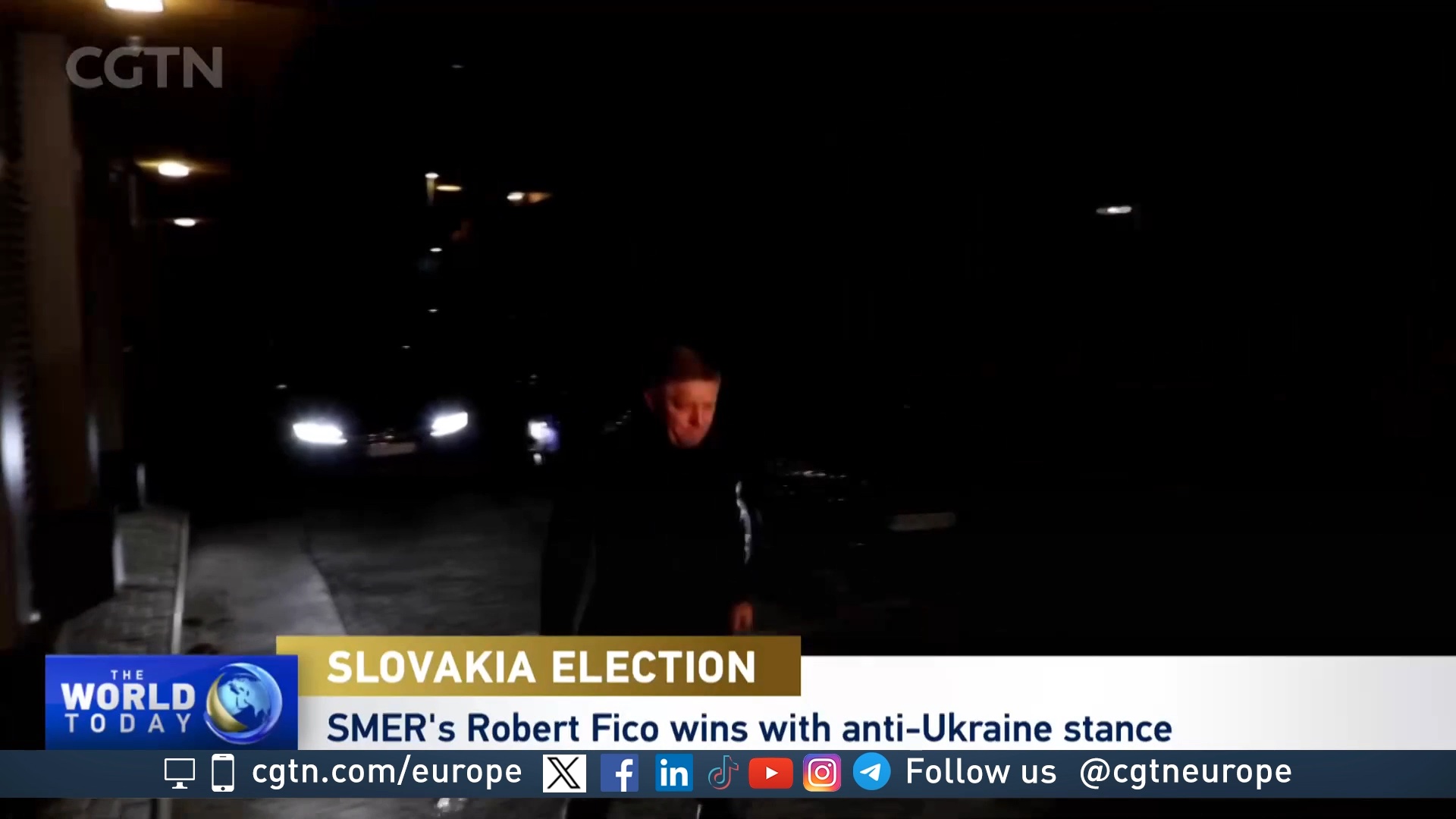02:45

Slovakia held parliamentary elections on Saturday – and the winner raises questions over whether the central European country will continue to support Ukraine.
The Smer-Social Democracy party of former Prime Minister Robert Fico won just under 23 percent of the votes, followed by the pro-EU party Progressive Slovakia (PS), led by Michal Simecka, with around 18 percent. The Hlas-SD party – led by another former prime minister, Peter Pellegrini – came in third with around 15 percent.
The results show that a new government can only be formed by a coalition, which was expected. But the big question now would be, who is going to make the sweetest coalition offer to other parties?
READ MORE
60 million watched Zhang Zhilei fight
Türkiye raises interest rates to 30%
Tourists flock to Slovakia in search of budget summer holidays
Fico came to his party headquarters almost as soon as voting stations closed at 22:45 local time. Surrounded by cameras and journalists, he refused to make any comments or statements.
Soon after, the first preliminary results confirmed that SMER was going to be the election winner.
The Ukraine question
However, on the other side of Bratislava, the atmosphere was not as jubilant in the PS camp. Their only hope is that the main point of their campaign would be followed by the new coalition government.
"I'm hopeful that, again, regardless of how the election plays out, Slovakia will continue to support Ukraine as it has until today," PS leader Simecka said.

Robert Fico arrives for a press conference at the Smer-Social Democracy party headquarters after an early parliamentary election in Bratislava, Slovakia. /Vladimir Simicek/AFP
Robert Fico arrives for a press conference at the Smer-Social Democracy party headquarters after an early parliamentary election in Bratislava, Slovakia. /Vladimir Simicek/AFP
Slovakia is one of the biggest suppliers of weapons and ammunition to Ukraine, its easterly neighbor with whom it shares a 100km border. But judging by what the third main party leader Peter Pellegrini said earlier on Saturday morning, it seems that PS hopes about continued support might not materialize.
"Slovakia has depleted all options for any military help for Ukraine, so this, of course, is not a topic for Slovakia anymore," said Pellegrini. "Of course, humanitarian aid is available when needed.
"What I would focus on and would like to do is agree a deal with Brussels to allocate some of the future help intended for Ukraine to come to Slovakia, to help flourish eastern Slovakia," he added.
Deep divisions
Some of the voters CGTN spoke to at a Bratislava voting station expressed their dissatisfaction with the country's Ukraine policies and admitted that some deep divisions exist in the country.
"It is full of Ukrainians here," said one female voter. "This is what I seriously do not like. They get benefits. Energy costs went up, everything went up. So basically, they are getting benefits, and we, the citizens, are paying."
Another Bratislava resident, Vladimir said: "There are a lot of problems because society is divided into two groups - one is pro-western, and the other is rather pro-eastern. Here in Bratislava, the majority of citizens are unambiguously pro-Western."
Vladimir's observation has been proven to be correct by the election result, as Bratislava was one of only two regions in the country where pro-EU Progressive Slovakia has won.
It is obvious that the issue of supporting Ukraine has dominated these elections, yet the end result of political wheeling and dealing as efforts get underway to form a coalition, remains to be seen.
So, which concessions would determine whether Slovakia would continue its military support for Ukraine or if it would turn its back on Brussels's demands and join the ranks of Viktor Orban's Hungary?

Subscribe to Storyboard: A weekly newsletter bringing you the best of CGTN every Friday